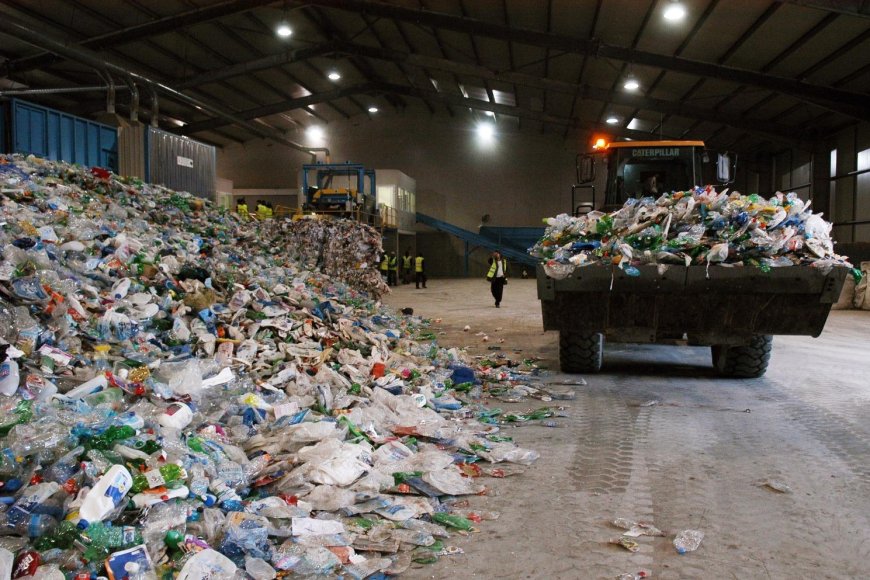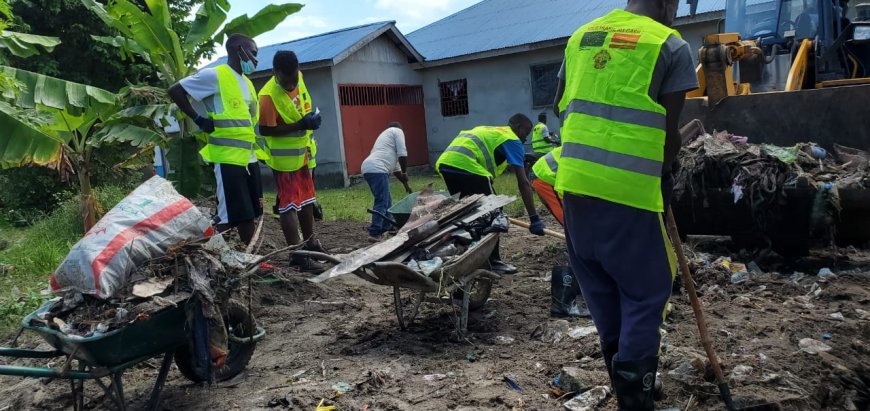From Trash to Treasure: The Rise of Circular Economies in Africa
Discover how innovative recycling and upcycling initiatives across Africa are turning waste into valuable resources. Explore success stories from Kenya and beyond, showcasing the rise of circular economies and their impact on environmental justice and economic empowerment. Dive into ‘From Trash to Treasure: The Rise of Circular Economies in Africa’ and explore how recycling and upcycling initiatives are transforming waste into valuable resources. Learn about inspiring success stories from Kenya and other African countries, highlighting the contributions to environmental justice and economic empowerment. Optimized for both Kenyan and international audiences.

Imagine a world where trash is not just discarded but transformed into treasure. Welcome to the rise of circular economies in Africa, where innovative recycling and upcycling initiatives are turning waste into valuable resources. This isn’t just about cleaning up our streets; it’s about creating economic opportunities and promoting environmental justice. So, grab your eco-friendly popcorn and let’s dive into some inspiring success stories from Kenya and beyond.
The Eco-Warriors of Kenya
First up, meet Lorna Rutto, the Kenyan eco-preneur behind EcoPost. Lorna saw the mountains of plastic waste piling up in Nairobi and decided to do something about it. She founded EcoPost, a social enterprise that recycles plastic waste into durable, eco-friendly fencing posts. These posts are not only saving trees from being cut down for timber but also providing jobs for hundreds of Kenyans1. Talk about turning trash into treasure!
But Lorna isn’t alone in this green revolution. Across Kenya, young innovators are finding creative ways to tackle waste. Take the example of Gjenge Makers, a startup that transforms plastic waste into sustainable building materials. Their eco-friendly bricks are stronger than concrete and have been used to build schools and homes, providing both environmental and social benefits2.
Upcycling Across Africa
Kenya’s not the only country getting in on the action. In Uganda, Andrew Mupuya founded Youth Entrepreneurial Link Investments (YELI) at just 16 years old. Faced with financial hardship, Andrew started collecting used plastic bottles and bags, which he sold to recycling plants. He then pivoted to producing handmade paper bags, a business that has grown exponentially and now employs over 20 people3. Andrew’s story is a testament to the power of innovation and resilience.
Meanwhile, in South Africa, Repurpose Schoolbags is making waves. Founded by Thato Kgatlhanye and Rea Ngwane, this startup combines recycling, solar energy, and education. They create schoolbags from recycled plastic that double as solar-powered lamps, allowing children to study after dark. This ingenious solution addresses both waste management and educational challenges4.
The Bigger Picture

These initiatives are more than just isolated success stories; they are part of a broader movement towards circular economies in Africa. By reimagining waste as a resource, these entrepreneurs are driving economic empowerment and environmental justice. They are creating jobs, reducing pollution, and promoting sustainable development.
The impact of these initiatives extends beyond the environment. They are empowering marginalized communities, providing livelihoods, and fostering a culture of innovation. For instance, Upcycle Africa trains disadvantaged youth in Uganda to upcycle plastic waste into valuable products like eco-homes and accessories. This not only addresses the waste crisis but also equips young people with skills and opportunities.
The Road Ahead
As Africa continues to urbanize and grow economically, the challenge of waste management will only intensify. However, the rise of circular economies offers a promising solution. By embracing recycling and upcycling, we can turn the tide on waste and create a more sustainable future.
Governments, businesses, and individuals all have a role to play in this green revolution. Policies that support recycling initiatives, investments in sustainable technologies, and public awareness campaigns are crucial. And as consumers, we can make a difference by choosing eco-friendly products and supporting businesses that prioritize sustainability.
Conclusion
From the bustling streets of Nairobi to the vibrant communities of Kampala and Johannesburg, the rise of circular economies is transforming Africa. These innovative recycling and upcycling initiatives are turning trash into treasure, driving economic empowerment, and promoting environmental justice. So, the next time you see a plastic bottle or an old bag, remember: it might just be the building block of a brighter, greener future.
What's Your Reaction?















































































































